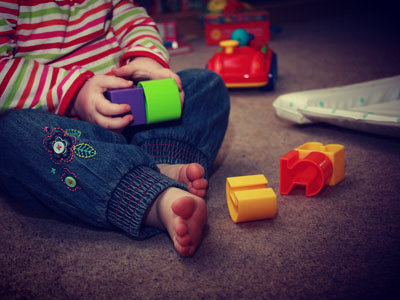
Care applications in July were the highest they have ever been, according to figures from Cafcass (Children and Family Court Advisory and Support Service).
Cafcass received 1,013 applications in July, up 16% on the same time last year and the highest number of applications ever recorded in a single month.
The figure comes in the wake of the implementation of the 2014 Children and Families Act which limits the timescale for care proceedings to 26 weeks.
Explaining the dramatic leap in care demand, Cafcass chief executive Anthony Douglas said it “shows the continuing volatility in the national totals for care applications”.
Douglas said the rise had been predicted by Cafcass since the introduction of the revised public law outline (PLO) in April this year. The PLO details the legislation that limits care proceedings to 26 weeks.
“The impact of the revised PLO, where the national average duration of new cases is now under the 26 week limit, is helping to focus attention on early planning for children who cannot stay at home or return home,” he said. “These cases are receiving an even-higher priority in local authorities – to good effect.”
John Simmonds, director of policy, research and development at the British Association for Adoption and Fostering, expressed concern of what new care proceedings could do to the system if figures continue to rise in this way.
“We have seen the introduction of the requirement that care proceedings be completed in 26 weeks,” he said. “An increase in care applications of this size, if maintained, will put intolerable pressure on the courts, local authorities, Cafcass and families themselves.”
Douglas said future trends remain unclear but noted: “All the indications are that children at the highest levels of risk from neglect and abuse are being brought into the formal care system for the right reasons at an earlier stage, with increasing improvements in case planning on the part of local authorities. This in turn increases the chances of them being placed successfully.”
Despite the July increase, care applications between April 2013 and March 2014 are still 5% lower than the number received between April 2012 and March 2013.


 Bournemouth, Christchurch and Poole
Bournemouth, Christchurch and Poole  Hampshire County Council
Hampshire County Council  Lincolnshire County Council
Lincolnshire County Council  Norfolk County Council
Norfolk County Council  Northamptonshire Children’s Trust
Northamptonshire Children’s Trust  South Gloucestershire Council
South Gloucestershire Council  Wiltshire Council
Wiltshire Council  Wokingham Borough Council
Wokingham Borough Council  Children and young people with SEND are ‘valued and prioritised’ in Wiltshire, find inspectors
Children and young people with SEND are ‘valued and prioritised’ in Wiltshire, find inspectors  How specialist refugee teams benefit young people and social workers
How specialist refugee teams benefit young people and social workers  Podcast: returning to social work after becoming a first-time parent
Podcast: returning to social work after becoming a first-time parent  Podcast: would you work for an inadequate-rated service?
Podcast: would you work for an inadequate-rated service?  Family help: one local authority’s experience of the model
Family help: one local authority’s experience of the model  Workforce Insights – showcasing a selection of the sector’s top recruiters
Workforce Insights – showcasing a selection of the sector’s top recruiters 

 Facebook
Facebook X
X LinkedIn
LinkedIn Instagram
Instagram
Care application will always high in the UK without a doubt, there is many reason for this. One we have to many selfish parents who living in their own world and some of them believe that children are toys that they can put away after chistmas. Other just not have the mental ability of the right knowledge to be parents. I have watch children grown up in care and they become parents and they find themselves in the same cycle as their parent and fore parents. I am wondering when will this cycle broken? Who will be willing to conduct appropriate and good enough parenting skills / support to these individuals? We don’t have enough Family Support Workers and Social Workers to conduct direct work with these parents and the Local Authorities all over the country is taking more and more children into care without the appropriate resources. The Children’s Directors need to sit down in discussion with the Children and Families Minister and find another approach working with children and their families that continuously off loading their children unto the Local Authorities. My opinion the Government should have active penalty for parents who continuously putting their children at risk and in care.
The experience of working in intensive support projects with complex families indicates that many parents need intensive support for over a year or more in order to make sustainable differences. Many services are short term and fragmented. In my experience parents who cannot provide good enough parenting often have a combination of difficulties including learning disability, mental health problems, and trauma / poor parenting in their own childhoods. Added to the stress of domestic abuse, poverty and lack of support, and ways of coping that can include self harm or substance misuse, there are few “quick fixes”. Penalties are not likely to make any difference to these parents other than to add further stress. Unfortunately social workers are rarely able to provide the intensive support needed to make a difference. If care applications increase, the cost of care placements will once again swallow the budget that could be available to give support. Ring fenced funding needs to be in place for intensive support for complex families on the threshold of care proceedings.